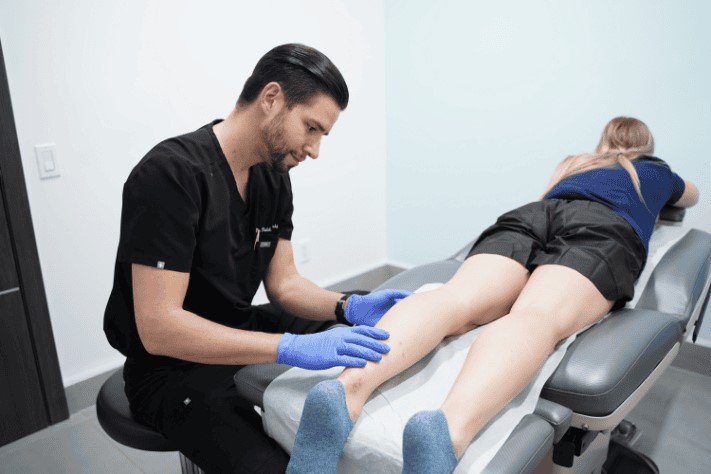
What Type of Doctor Treats Varicose Veins?
Varicose veins are a common vascular condition that affects many individuals, causing discomfort and aesthetic concerns. Understanding which type of doctor treats varicose veins is crucial for seeking appropriate medical care and effective treatment. In this comprehensive guide, we’ll explore the various healthcare professionals involved in the diagnosis, management, and treatment of varicose veins.
Introduction to Varicose Veins
Varicose veins are enlarged, swollen, and twisted veins that often appear dark blue or purple. They usually occur in the legs and can be caused by weakened or damaged vein walls and valves. Factors such as genetics, age, pregnancy, obesity, and prolonged standing or sitting can increase the risk of developing varicose veins.
Importance of Seeking Medical Attention
While varicose veins may initially seem like a cosmetic issue, they can progress to cause discomfort, pain, swelling, and complications such as ulcers or blood clots if left untreated. Consulting with the right healthcare provider ensures proper diagnosis and treatment, improving both symptoms and overall vascular health.
Types of Doctors Who Treat Varicose Veins
Vascular Surgeon:
- Expertise: Vascular surgeons specialize in diagnosing and treating disorders of the vascular system, including varicose veins. They perform both surgical and minimally invasive procedures to address venous insufficiency.
Interventional Radiologist:
- Role: Interventional radiologists use imaging techniques such as ultrasound to guide minimally invasive procedures for treating varicose veins, such as sclerotherapy and endovenous laser therapy (EVLT).
Phlebologist:
- Definition: Phlebologists are specialists who focus on the diagnosis and treatment of vein disorders. They may use a combination of medical and minimally invasive procedures to manage varicose veins.
Vascular Medicine Specialist:
- Scope: These specialists focus on non-invasive and medical management of vascular conditions, including varicose veins. They may prescribe medications and recommend lifestyle changes to alleviate symptoms.
Dermatologist:
- Involvement: Dermatologists may treat superficial varicose veins that are closer to the skin’s surface using techniques like sclerotherapy. They often collaborate with vascular specialists for comprehensive care.
Diagnosis and Evaluation
When visiting a doctor for varicose veins, the evaluation typically includes a physical examination, medical history review, and possibly imaging tests such as ultrasound to assess vein function and identify underlying issues contributing to varicose veins.
Treatment Options
Compression Therapy:
- Purpose: Compression stockings or wraps help improve circulation and reduce swelling associated with varicose veins.
Sclerotherapy:
- Procedure: A chemical solution is injected into the affected vein, causing it to collapse and eventually fade from view.
Endovenous Ablation Therapy:
- Techniques: This includes procedures like EVLT or radiofrequency ablation (RFA), which use heat to seal off varicose veins.
Surgical Interventions:
- Options: Surgical procedures such as vein ligation and stripping may be recommended for severe or resistant cases of varicose veins.
Lifestyle Modifications:
- Recommendations: Doctors often suggest regular exercise, weight management, elevation of legs, and avoiding prolonged sitting or standing to alleviate symptoms and prevent worsening of varicose veins.
Choosing the Right Doctor
Selecting the appropriate healthcare provider for varicose vein treatment depends on various factors, including the severity of symptoms, personal preferences, and the doctor’s expertise in venous disorders. It’s essential to consult with a specialist who can offer a comprehensive evaluation and tailor treatment plans to individual needs.
Conclusion
Understanding what type of doctor treats varicose veins is the first step towards effective management and relief from this common vascular condition. Whether seeking minimally invasive procedures or surgical interventions, consulting with a qualified specialist ensures appropriate care and improves vascular health outcomes. Don’t hesitate to schedule an appointment with a healthcare provider experienced in treating varicose veins to discuss personalized treatment options and regain comfort and confidence in your legs.





Leave Your Comment